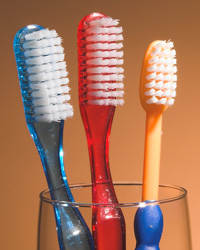Tooth Pain - Near You in
Richard B. Scott, D.D.S.
Appointments: (714) 635-0892

Richard Scott D.D.S.
Richard B. Scott, D.D.S.
215 N. State College
Anaheim, CA 92806






Dr. Richard Scott is a trusted Anaheim area veneers dentist. Our professional team is dedicated to providing you with quality results in a comfortable and pleasant atmosphere.
You won't have to feel embarrassed any longer by crooked, chipped or discolored teeth. With your new dental veneers, you'll be thrilled to show off your healthy teeth and beautiful smile.
Dr. Scott has extensive experience providing gingivitis treatments in the Anaheim area. Bleeding gums can lead to more serious health problems if not treated promptly.
Our friendly, professional team will evaluate your needs and design a personal treatment plan. We'll help you have healthy gums and teeth for life.
If you're looking for dentures that look great and last, look no further than Richard B. Scott, D.D.S. located in the Anaheim, CA area. Richard Scott, D.D.S. will assess your needs and fit you with durable, comfortable, natural-looking dentures - at a price you can afford.
If you need gum disease treatment, Anaheim area gum disease dentist, Dr. Scott offers extensive experience. Unhealthy gums can be a risk factor for more serious health problems if not treated promptly.
Our professional team will assess your situation and create a personalized treatment plan. We're committed to your life-long healthy gums and teeth.

More Dental Hygiene Dentists in the Anaheim, CA Area Near You
Mouton, Marsha E D.D.S.
810 E Manchester Blvd # 1
Inglewood, CA, 90301-9222
Jan Odell Inc
27462 Calle Arroyo # 46b
San Juan Cpstrno, CA, 92675-6762
Doctor - Activate Your Free 1stDentalHygiene Directory Listing
Lee, Michelle D.D.S.
44100 Jefferson St # D404
Indio, CA, 92201-2714
Kano, Keith D.D.S.
909 W Roseburg Ave # A
Modesto, CA, 95350-5062

